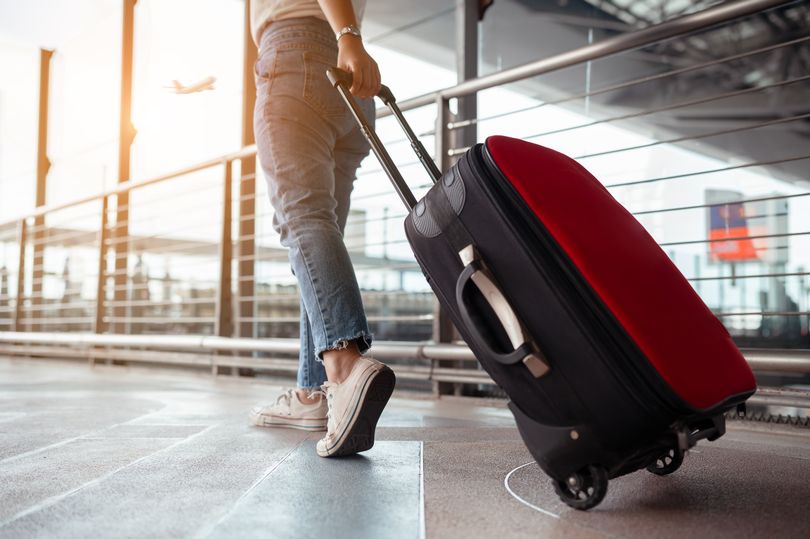
MAJOR AIRPORT AND ATM CASH MACHINE HOLIDAY ERRORS THAT COULD COST YOU DEARLY THIS SUMMER
Brits across the country are jetting away on their holidays this month - but when it comes to spending abroad there are some things they should be aware of.
The cost of living crisis has seen the majority of us tighten our belts and many of us may have worked hard to budget for a little getaway this year. However, if you are going away this year then you don't want to ruin the savings you've made by accidentally spending loads whilst you are away.
Spending your money in different currencies is not madly simple and does require some thought and planning. For example, simply pulling out £100 of cash in a foreign currency could actually cost you £7.99 in extra charges according to the comparison site Totally Money. So to help travellers this summer, the Mirror has put together some of the major dos and don'ts when spending your hard-earned cash on holiday.
The DO's for spending abroad
DO: Pick the right debit card
The most common way you likely spend your money is through your debit card. When you are abroad you can spend and withdraw cash through your debit card just like you do at home, however, it does need to have the Visa or Mastercard logo to do this. However, you should be aware that spending on your card can rack up some fees. These fees can include:
- Non-sterling transaction fee - This is charged on your card for converting the local currency for purchases you make abroad, it can also be charged when you withdraw cash from an ATM
- Non-sterling purchase fee - Some banks add a fee on top of the transaction fee, this can be a fixed amount such as £1.50 or a percentage of your purchase
However, you can avoid these extra costs by using a debit card which does not add extra charges and is free to use abroad including withdrawing cash. Some banks which have free spending abroad include First Direct, Monzo, Starling and Chase.
DO: Choose the local currency when paying by card
This is where people often get confused. When you pay by debit or credit card, you might be asked whether you would like to be charged in your home currency or in the local. If you are given this option you should always choose the local. If you choose GBP, you may not get the best exchange rate and you will often have to pay a fee ontop to do the exchange.
DO: Consider a travel credit card
Like debit cards, free travel credit cards let you spend overseas without incurring any extra charges. Alongside this, you are likely to be given the best exchange rates too. As well as Section 75 protection for purchases between £100 and £30,000, some travel credit cards also offer cashback rewards – so you can earn a little extra from your holiday spending.
However, like normal credit cards, you will need to pay off the balance before the deadline. Interest rates on these cards are often high, which would quickly cancel any savings you’ve made.
The DON'Ts for spending abroad
DON’T: Exchange currency at the airport
This is something you should always note, but you should never change your cash at the airport bureau de change. It is definitely the most convenient way to exchange your money as you usually have some time to kill when you are there. However, the exchange rates are notoriously poor. According to research from the consumer group Which? one airport gave 115 euros less when exchanging £500 cash.
DON’T: Forget to check ATM machines
Some ATMs will charge a flat transaction fee if you withdraw cash, so always check. If it does, it will tell you on the main screen, alongside how much it will cost. Try to swerve high-cost ATMs in places such as airports and major tourist spots whilst you are abroad, in favour of those at local bank branches. If you do have to pay a flat fee, it’s worth taking out a larger amount in one go rather than smaller amounts throughout your trip.
DON'T: Assume your credit card has no charges
Some people believe that using your everyday credit card abroad will be cheaper than using your debit. This is a misconception and like your everyday card, you can incur extra charges when using it abroad. According to Which? three types of charges can be layered on when using a credit card abroad, these include:
- Non-sterling transaction fee: This is a percentage of the value of each transaction, according to Which? you'll typically pay up to 2.99% each time you use a credit card
- Non-sterling cash fee: You can also expect to pay a fee of around 3% or a minimum of £3 - when you take money out of an ATM with a credit card.
- Interest on cash withdrawals: When using a credit card, you'll also be charged interest on cash withdrawals straight away, which can be a lot higher than the interest you are charged for purchases